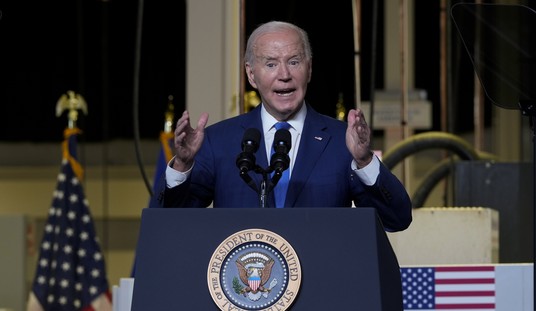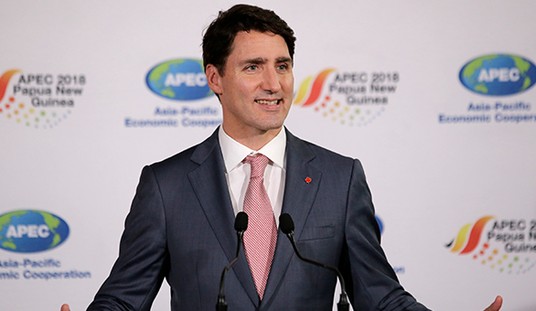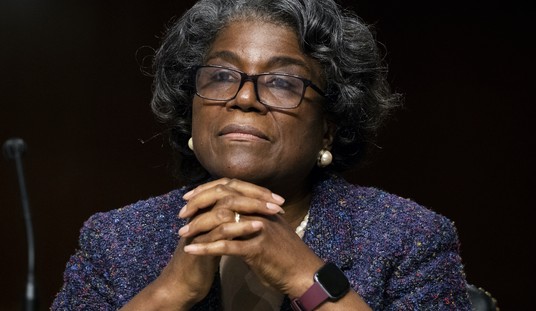I’ve made this point before but will repeat it here: Since losing his Twitter account remains the only penalty of any kind that Trump has received for trying to stage a coup in the United States, we might as well give it back to him.
Better to have no punishment at all than a punishment so meager that it makes a mockery of American civics. It’s like convicting someone of attempted murder and then fining them one dollar. If that’s all we’re willing to do in the name of deterrence, let’s drop the pretense that we’re engaged in deterrence at all and waive the fine.
Elon Musk gave an interview today in which he confirmed what everyone already assumed, that he would let Trump back on Twitter if he takes over the company. We already knew that, sort of, from the Wall Street Journal’s reporting a few weeks but now we’ve got it straight from the horse’s mouth. Suspensions are one thing, said Musk, but being permanently barred from using the platform should be reserved for spammers and scammers.
Musk would reverse Trump's Twitter ban:
• Ban was "morally bad" & "mistake because it alienated a large part of the country and did not ultimately result in Donald Trump not having a voice."
• Permanent bans "undermine trust"
• "It will amplify [Trump's voice] among the right" pic.twitter.com/TJwjCZc4EY— The Recount (@therecount) May 10, 2022
There are three distinct motives floating around for letting Trump back on Twitter. One is business, which Musk doesn’t play up but which must be influencing his calculations. Twitter has a new competitor in Truth Social that has the potential to become a right-wing behemoth. Musk wants that user base on Twitter; he needs it if he’s going to expand Twitter’s footprint. But Truth Social has a draw that even Musk can’t match, the exclusive presence of Donald Trump. All Musk can do to counter them is un-ban Trump from Twitter and hope that he eventually starts tweeting again, which he probably will. (Never mind what he said last month.) The idea of regaining his Twitter privileges after having been banned over the insurrection will feel like a sublime “own the libs” moment for him, I’m sure. It’s the only domino left to fall before he can say he enjoys total impunity over January 6.
The second motive is preventing civic segmentation on social media, which Musk alludes to in his answer. He doesn’t like the idea of right-wingers going off and sequestering themselves at Truth Social or wherever instead of participating in “the town square,” by which he means Twitter. It’s not a matter of losing their revenue as potential Twitter users but rather a matter of segments of the population feeling so alienated from each other that they can’t interact in the same virtual space. It contributes to polarization and potentially even radicalization. If he can bring some of those disaffected righties back onto Twitter and into the American mainstream by restoring the account of their hero, Trump, he’s willing to do it.
The third motive is that banning Trump was “morally bad,” which, no, it isn’t. It *is* morally bad to subject Trump to harsher penalties than Chinese, Russian, Iranian and other foreign public officials who are guilty of worse things than he is. But morally bad in the abstract? Not at all. Who knows what sort of insanity Twitter prevented by yanking his mic at a moment when he seemed downright manic and capable of anything in trying to cling to power? If someone’s in the process of inciting a riot and you have a way to cut the power to their loudspeaker — and you own the loudspeaker — it’s certainly not “morally bad” to do it.
Whether that means Trump should be banned permanently is a separate question. But here’s one way Musk could approach that: Trump gets his account back just as soon as he stops engaging in the sort of incitement that precipitated the attack on the Capitol on January 6, something he has yet to do 16 months later. When he stops screeching about stolen elections, he gets to log on again. Or Musk could let him back on and then ban him again if and when he starts tweeting about stolen elections. Trump wouldn’t last five minutes.
I’m confused, though, by Musk’s point about how banning Trump from Twitter didn’t end up silencing his “voice.” I mean, true enough, but he’s a former president and has been a household name in America for decades. Even if he hadn’t built Truth Social, he could still dial in to Fox News or issue statements and have his words picked up by global media everywhere. Banning Trump from Twitter wasn’t supposed to comprehensively silence him, it was Twitter’s way of saying that it wouldn’t allow its platform to be used as a megaphone for a coup plotter who seemed on the brink of calling for a mass uprising by his millions of fans at the moment he was banned.
But for the record, deplatforming *does* work to limit the reach of people who aren’t mega-famous. Milo Yiannopoulos, for instance, was a well-known figure on the activist right in 2016 but became much harder to find once he started getting thrown off major social media platforms. So I don’t know what standard Musk is suggesting in the clip. Twitter *should* consider perma-bans if and only if doing so would meaningfully “silence” that person? He seems to be saying the opposite, instead using the impossibility of silencing Trump as an excuse to re-platform lesser trolls who have since been successfully marginalized.
They’re all watching closely, incidentally. And they’re excited.
I’ll leave you with this as a reminder that there’s only one way “stop the steal” true believers will ever be effectively deterred. It’s not through Twitter bans. It’s in court.
— One America News (@OANN) May 9, 2022








Join the conversation as a VIP Member